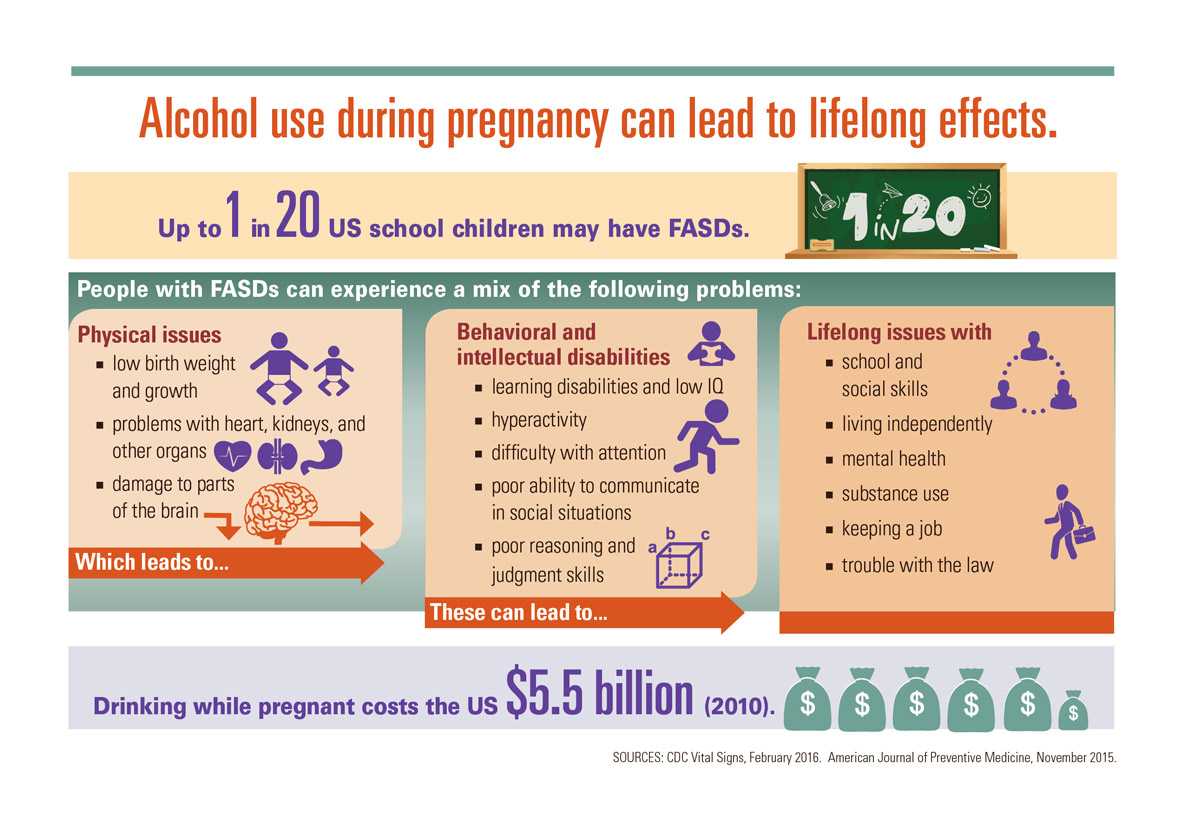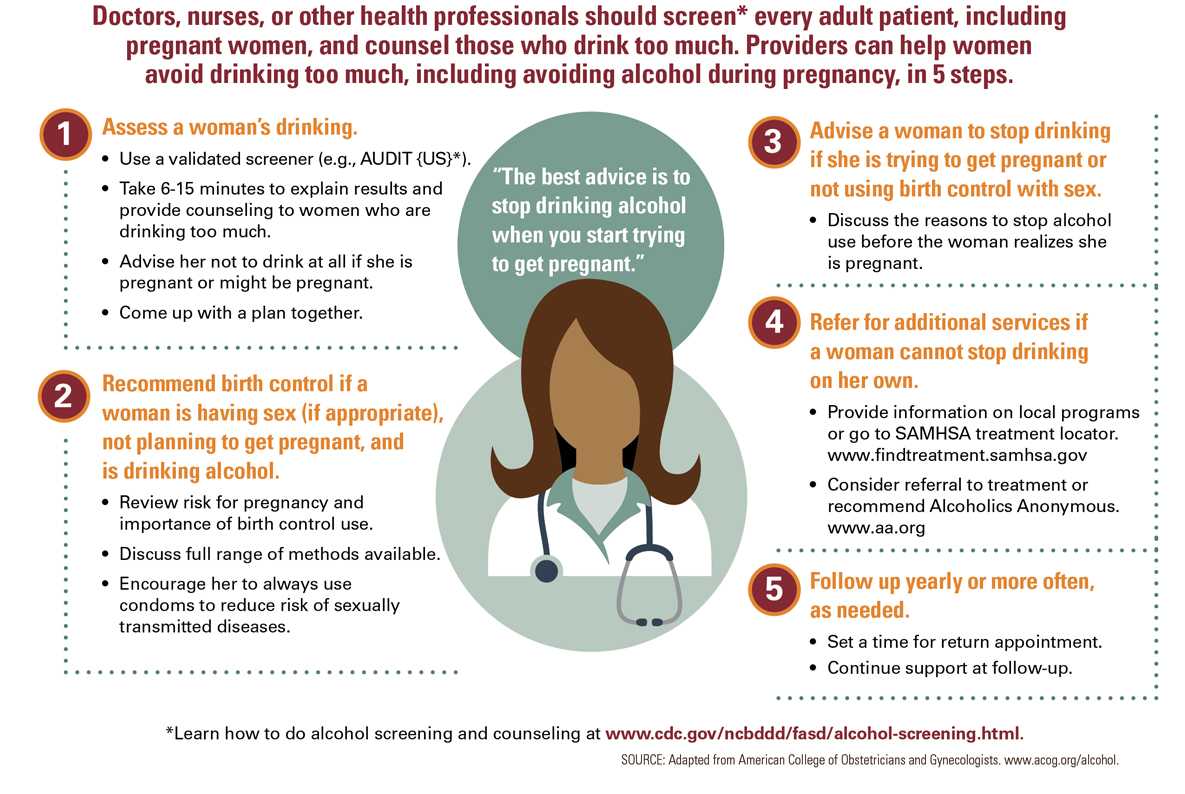Alcohol and Pregnancy
Why take the risk?
Alcohol use during pregnancy can lead to lifelong effects
Up to 1 in 20 US school children may have FASDs
People with FASDs can experience a mix of the following problems:
Physical issues.
- low birth weight and growth.
- problems with heart, kidneys, and other organs.
- damage to parts of the brain.
Which leads to...
Behavioral and intellectual disabilities
- learning disabilities and low IQ
- hyperactivity
- difficulty with attention
- poor ability to communicate in social situations
- poor reasoning and judgment skills
These can lead to...
Lifelong issues with
- school and social skills
- living independently
- mental health
- substance use
- keeping a job
- trouble with the law
Drinking while pregnant costs the US $5.5 billion (2010).
SOURCES: CDC Vital Signs, February 2016. American Journal of Preventive Medicine, November 2015.
Doctors, nurses, or other health professionals should screen* every adult patient, including pregnant women, and counsel those who drink too much. Providers can help women avoid drinking too much, including avoiding alcohol during pregnancy, in 5 steps.
- Assess a woman’s drinking.
- Use a validated screener (e.g., AUDIT {US}*).
- Take 6-15 minutes to explain results and provide counseling to women who are drinking too much.
- Advise her not to drink at all if she is pregnant or might be pregnant.
- Come up with a plan together.
- Recommend birth control if a woman is having sex (if appropriate), not planning to get pregnant, and is drinking alcohol.
- Review risk for pregnancy and importance of birth control use.
- Discuss full range of methods available.
- Encourage her to always use condoms to reduce risk of sexually transmitted diseases.
- Advise a woman to stop drinking if she is trying to get pregnant or not using birth control with sex.
- Discuss the reasons to stop alcohol use before the woman realizes she is pregnant.
- Refer for additional services if a woman cannot stop drinking on her own.
- Provide information on local programs or go to SAMHSA treatment locator. www.findtreatment.samhsa.gov
- Consider referral to treatment or recommend Alcoholics Anonymous. www.aa.org
- Follow up yearly or more often, as needed.
- Set a time for return appointment.
- Continue support at follow-up.
*Learn how to do alcohol screening and counseling at www.cdc.gov/ncbddd/fasd/alcohol-screening.html.
SOURCE: Adapted from American College of Obstetricians and Gynecologists. www.acog.org/alcohol.
- Page last reviewed: February 2, 2016
- Page last updated: February 10, 2016
- Content source:
Error processing SSI file


 ShareCompartir
ShareCompartir

